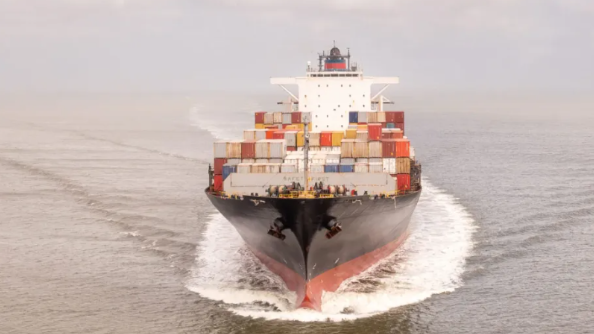According to data from investment bank Jefferies, diversions of tankers and dry bulk carriers have risen. So far this year, diversions of dry bulk carriers account for 56% of the 2023 data, up from 45% in 2024; crude oil tanker diversions have increased from 35% to 48%, and product tankers from 45% to 52%.
Container ship diversions continue, with transit volumes in the region in 2025 down 90% compared to 2023. This remains stable compared to 2024, while LNG and LPG carriers continue to divert at the same rates as in 2024, with 80% and 74% of their capacity, respectively, bypassing the region so far this year.
Data from ABG Sundal Collier shows that overall arrivals in the Gulf of Aden have dropped by 72% compared to the 2023 average, severely impacting Egypt's economy and Suez Canal revenues.
Ralph Leszczynski, Head of Research at Banchero Costa, said that according to AIS tracking data, there are currently about 200 Red Sea transits per week. This is still less than half of the figure from two years ago, when there were about 500 transits per week.
On Tuesday, the Houthi rebels announced that they would reinstate a ban on all Israeli vessels passing through the Red Sea, the Arabian Sea, and the Bab el-Mandeb Strait. This came after the expiration of a four-day deadline they had set for Israel to allow humanitarian aid into Gaza.
British maritime security expert Ambrey believes that the description of Israel in the statement is ambiguous.
Ambrey advised commercial vessels to check their connections to Houthi targets and reassess the risks of navigating the Red Sea and the Gulf of Aden.
"The situation in the Red Sea remains arguably dangerous, considering the fragile ceasefire in Gaza, the resurgence of sectarian conflicts in Syria, and the inflammatory rhetoric from the U.S. government regarding Gaza and Iran in recent weeks. Therefore, many believe that the Houthis are likely to resume attacks in the near future. As a result, many shipowners still prefer to play it safe and avoid risking their vessels and crews," commented Leszczynski of Banchero Costa.
Although no actual attacks have been reported since the Houthi announcement on Tuesday, the UK Maritime Trade Operations (UKMTO) reported electronic interference affecting multiple vessels in the region, causing navigation systems to fail and forcing ships to rely on backup methods.
From late 2023 through last year, more than 100 vessels were attacked. The Houthis halted their actions against commercial ships this year, in line with a preliminary peace agreement between Israel and Hamas.
There is little indication that authorities believe the Red Sea shipping crisis will end soon.
Last month, the European Union announced that it would extend its maritime security operation, EUNAVFOR Aspides, for another year, strengthening efforts to maintain freedom of navigation in the Red Sea region. The operation will continue until February 28, 2026, with a budget exceeding €17 million ($17.8 million) for the extended period.
When the Red Sea reopens to commercial vessels will determine the profit or loss of many shipping companies this year.
Last month, Maersk executives outlined how the Houthi situation would determine profitability for the coming year. Maersk's forecast for 2025 EBITDA ranges from zero to $3 billion, depending on whether the Red Sea reopens mid-year or at the end of the year.

Last
The United States may block these ships from entering ports! The FMC will investigate container shipping choke points.
The United States may take action against congested areas such as the Panama Canal, the English Channel, and the Suez Canal. If th

Next
One in Five Shipping Companies Has Suffered Cyberattacks in the Past 12 Months
According to a survey result from a recently released 57-page cybersecurity report by Thetius, CyberOwl, and HFW, one-fifth of shi
